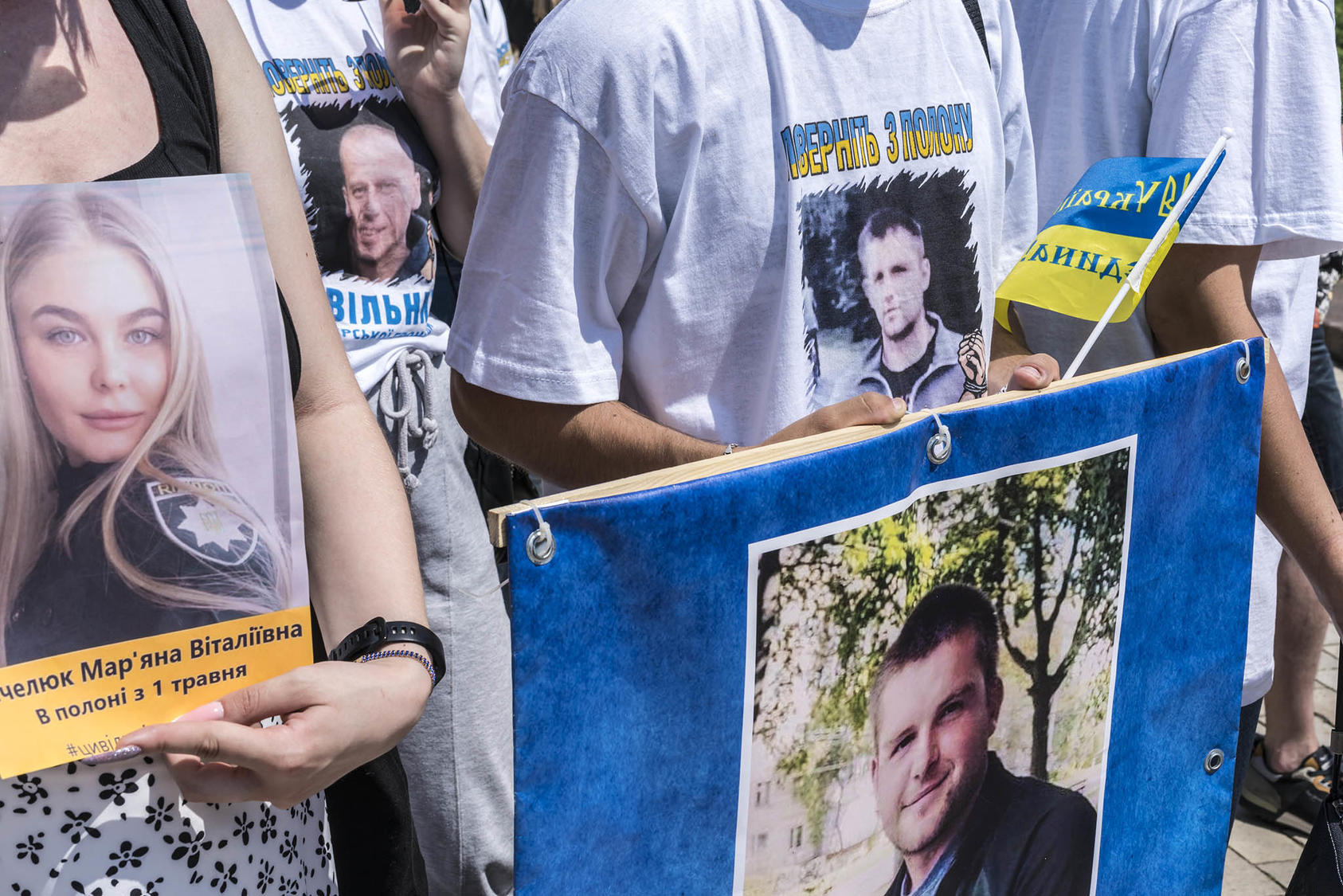Conversations in Kyiv: Ukrainians vow to resist Kremlin rule and corruption.
Two days into Ukraine’s unfolding counteroffensive, a soldier just back from one of the first probes into Russian defensive lines called me on WhatsApp, giddy with excitement, to report his unit’s unexpected success. “We were told to push them back 600 meters,” he said, “but we got so little resistance, we pushed them back six kilometers! The Russians were soft!”

It is way too early to judge the success of the Ukrainian counteroffensive. The Russians have spent months hardening their defenses, so early days will be extraordinarily difficult for the Ukrainians. Last week’s destruction of the Kavkhovka dam will make it even more challenging. But the Ukrainian soldier’s high morale, after 15 months of brutal Russian assaults and atrocities, renewed a question central to this war: Why do the Ukrainians fight?
President Volodymyr Zelenskyy and other Ukrainian leaders for months have reminded the world of one reason: to make possible the kind of world we all want our children and grandchildren to live in — a rules-based order where powerful nations can’t get away with invading smaller nations. Ukrainians emphasize that they fight for principles embodied in the United Nations Charter — sovereignty and territorial integrity — and for freedom and democracy.
In recent visits to Ukraine with USIP colleagues, American officials, humanitarian assistance providers and others, I have heard a second, deeply visceral root of Ukrainians’ determination — even more powerful now than on the first day of Russia’s invasion. Ukrainians will not live under Russia.
In streets and at dining tables in Kyiv last month, visitors organized by the New York-based Renew Democracy Initiative heard Ukrainians describe a third reason for their fight that seems only to be consolidating under the 15 months of trauma in Ukraine and deepening dictatorship in Russia. That is their determination to obliterate from Ukraine the remnants and corruption of past and present Kremlin rule. Among those who emphasized it was Mustafa Nayyem, the Ukrainian former journalist who helped trigger the 2013 “Revolution of Dignity” that ousted Moscow-aligned President Viktor Yanukovych after he tried to block Ukrainians’ popular determination to move from Russia’s old, imperial sphere of dominance to Europe’s community of democracies. “We are fighting for a new Ukraine,” said Nayyem, now a senior official in charge of rebuilding Ukraine’s war-ravaged infrastructure.
The past 15 months have shown ever more vividly the contrast between a nightmarish subjugation to a corrupt Russian regime and the promises of democracy in league with Europe. “We are escaping our past,” Nayyem said.
The mayor of Kharkiv, Ukraine’s second-largest city, echoed that focus on escaping Kremlin corruption. In Washington last month, speaking in careful Ukrainian — no one speaks Russian in public anymore — Mayor Ihor Terekhov said Ukrainians are determined to apply a “wave of transparency and honesty” in shaping their future. Nayyem observed that after the victory, 1 million Ukrainian soldiers will reenter civilian life. They will have no tolerance for corruption.
Among Ukrainians we met in Kyiv, many are in their 30s and 40s. These are people who massed in the streets and squares, the “maidans,” of Ukrainian cities, in that 2013-2014 popular uprising to demand change. Like Nayyem, many of these people are now in Zelenskyy’s government. Former journalists, activists and students, they are now government officials, even ministers, absolutely committed to the new Ukraine.
Others of this generation are fighting on the front lines. A 44-year-old friend — who asked to be named only by his frontline call sign, Morgan — led a squad of protesters on the Maidan in 2014, then later became a senior provincial-level official. As the war approached, he joined the Kyiv territorial defense forces. On February 24, 2022, when the Russians invaded, he took his family to stay with his father in western Ukraine and returned to Kyiv to enlist in the regular army. He is now a lieutenant, fighting on the front lines. Three of us visiting Americans had dinner with him in Kyiv the day before he headed back to the front. “It’s going to be noisy!” he said. His sense of hope and optimism was palpable heading into Ukraine's counteroffensive.
In addition to ministers, generals and lieutenants, we talked to privates, young soldiers visiting from the front and heading back the next day. Among the Ukrainians were two Americans and two Belarusians. They were tired, yet eager to get back to their units. Morale is high.
Ukrainians are united as never before. Opinion polls show 90 percent-plus approval for President Zelenskyy and his refusal to compromise with the Russians. Ukrainian human rights organizations, democracy advocates, humanitarian service organizations, all make the case to Americans and Europeans for military support. Even opposition politicians — several of whom I met in Kyiv last month — support the president. They have concerns about wartime restrictions on media and some political activities, but they are 100 percent behind the president. After the victory, they will ask the hard questions. For now, they are fighting for a new Ukraine.